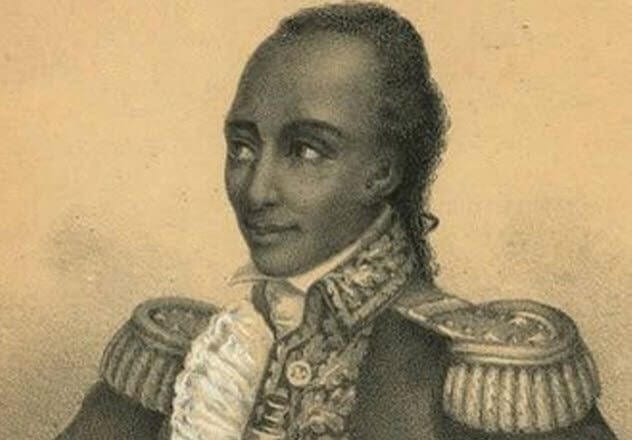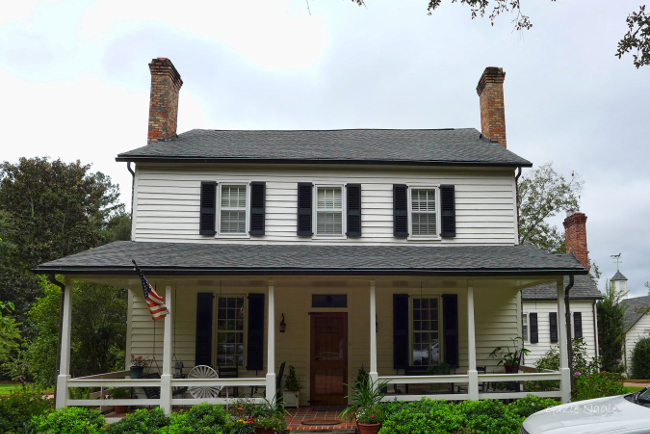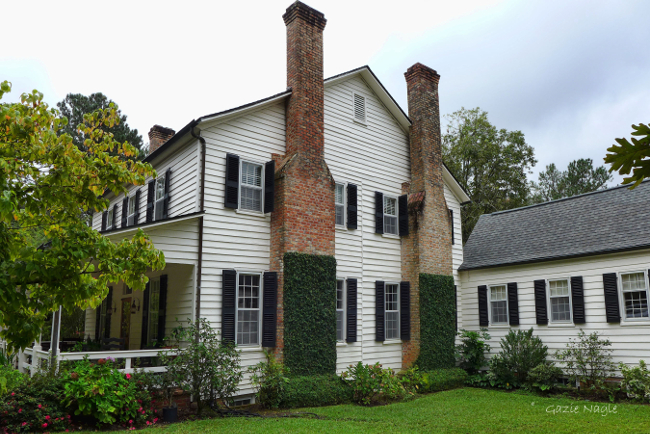

William Ellison Jr. (April 1790 – December 5, 1861), born April Ellison, was an American cotton gin maker and blacksmith in South Carolina, and former African-American slave who achieved considerable success as a slaveowner before the American Civil War.

He eventually became a major planter and one of the wealthiest property owners in the state. According to the 1860 census (in which his surname was listed as “Ellerson”), throughout his life he owned up to 171 black slaves in South Carolina and Georgia making him the largest slave owner in the area. He held 63 slaves at his death and more than 900 acres (360 ha) of land. From 1830 to 1865 he and his sons were the only free blacks in Sumter County, South Carolina to own slaves. The county was largely devoted to cotton plantations, and the majority population were slaves.
Ellison and his sons were among a number of successful free people of color in the antebellum years, but Ellison’s master had passed on social capital by apprenticing him to learn a valuable artisan trade as a cotton-gin maker, at which Ellison made a success. He took a wife at the age of 21. After buying his own freedom when he was 26, a few years later Ellison purchased his wife and their children, to protect them from sales as slaves. The Act of 1820 made it more difficult for slaveholders to make personal manumissions, but Ellison gained freedom for his sons and a quasi-freedom for his surviving daughter. During the American Civil War, Ellison and his sons supported the Confederate States of America and gave the government substantial donations and aid. A grandson fought in the regular Confederate Army and survived the war.
While some of these Black people owned slaves merely for personal or business reasons, others were just as callous as the White slave owners and would even adopt some sinister motives to profit big time from the trade. William Ellison Jr. is one of the biggest Black slave owners who changed the course of American history. Apart from being the harsh master who sometimes starved his slaves, Ellison was noted to have gained a lot of wealth as a “slave breeder”, where he sold almost all females born, and kept a few for future breeding. He, however, kept many of the young males, as he found them useful on his plantation.
Early Life
Becoming one of the largest slave owners in South Carolina in the 1860s, Ellison was mulatto and born to a slave woman and one of the Ellison men who owned her near Winnsboro in Fairfield District around 1790. He was originally named April Ellison as it was customary at the time for children of enslaved men and women to be named after the month in which they were born.
In 1802, Ellison became an apprentice under William McCreight, who was a gin builder. He did not only learn to build and repair cotton gins but also learned reading, writing, and arithmetic and also trained as a machinist, blacksmith and carpenter. Gaining more knowledge and experience, he began to work for wages during his free time. This enabled him to acquire the funds to purchase his freedom in 1816 around the age of 26. Some accounts state that he changed his name from April Ellison to William Ellison Jr as a sign of gratitude to his owner.
After gaining his freedom, he moved to the town of Stateburg in Sumter District, South Carolina. He bought and freed his enslaved wife and their daughter in 1817 and they went on to have three sons. Meanwhile, the cotton industry was expanding in the 1820s, and to meet demand, Ellison established a shop and started making his own brand of cotton gin known as the “Ellison Gin”. He sold locally but sometimes shipped his gin to other areas such as Mississippi.


The Ellison plantation in Sumter County, SC.
Besides his gin business, Ellison also offered blacksmith and carpentry services. Slaves helped him succeed in business. As he continued to hire slaves and train slave apprentices, he became a slaveowner in the 1820s.
“It has been estimated that by the 1850s, the profits from Ellison’s plantation exceeded those of his shop. In 1860 he owned nearly nine hundred acres of land and sixty-three slaves, which he conservatively valued at $53,000. His estate exceeded the total wealth of the other 328 free blacks in Sumter District by several times, and he was among the top ten percent of all slaveholders and landholders in the district,” writes South Carolina Encyclopedia.
In 1852, Ellison bought Keith Hill and Hickory Hill plantations, bringing his total of land holdings to more than 1,000 acres. He gave each of his sons part of the properties, as they were all working with him in his business. In 1850 the sons each held slave women who worked as domestic servants for their families.
Records also say that when the Civil War began, he offered the army 53 of his slaves. As he became successful, he became well respected and started sharing almost the same social status as Whites in his community. At Holy Cross Episcopal Church, he and his family had their own pew at the rear of the main floor while other Blacks were restricted to the galleries.
He also had other opportunities that his fellow Blacks did not have. For instance, he was able to buy his famous Wisdom Hall family mansion in 1838 from Stephen Miller, a former congressman and governor of South Carolina.
